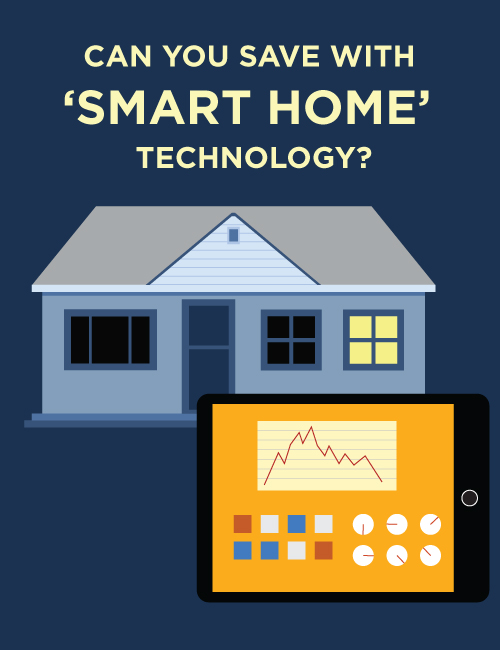Now that “smart home” technology has been around long enough to make it both accessible and affordable, it might be wise to figure out how you can make it work for your household. Here are four ways adopting “smart home” technology could benefit the average homeowner:
• Providing Convenience – Home automation products offer a world of convenience when it comes to performing daily tasks, which can save you time (and money). From controlling your electronics remotely using your smartphone to pre-heating your shower (or your oven) in bed or from your car, there are numerous ways smart home technology can make your life easier. Start by making a list of features you think might benefit you the most, then compare products that are available on the market. There are a variety of solutions and services to get you connected.
• Reducing Utility Costs and Conserving Energy – You might pay a little bit more to install smart home energy equipment (like smart thermostats and smart lighting) in your home, but you could save on replacement and power costs over time and get a whole host of other cool features in the meantime. A Wi-Fi enabled smart thermostat can cost anywhere from $100 to $250, but can save you on average $150 a year by optimizing your energy usage.1 And while a smart replacement light switch might cost you around $40, smart bulbs can last up to a whopping 40,000 hours – as opposed to the conventional ones, which only last about a 1,000 hours.2
•Offering Better Protection – Three-quarters of U.S. homeowners in a recent survey said they were motivated to purchase smart home technology to keep their families safe and comfortable.3 A smart home security system can provide around-the-clock surveillance you can monitor remotely from your fingertips. There are plenty of DIY options you could install yourself – such as a doorbell camera, motion lights or door sensors, or you could let a trustworthy professional provide education and installation.
•Increasing Your Property Value – Having smart home features, like a newer security system, a smart thermostat or a tankless water heater can make your property more attractive to a potential buyer. A recent study found more than 80 percent of homebuyers would opt for a home equipped with smart technology over a comparable home without.4 So, if you’re thinking of upgrading to smart home automation, think of it as a smart long-term investment.
1 SafeWise.com, “Smart Thermostat Faceoff: We Compare Nest vs. Ecobee,” May 17, 2016
2 smfx.com, “How Much Money Does Smart Lighting Save?,” March 16, 2016
3 cnet.com, “Study: Safety and Comfort the Main Factors Driving Smart Home Tech Adoption,” January 5, 2017
4 Forbes.com, “Why Smart Homes Will Be A Million Times Better Than ‘The Jetsons’,” April 19, 2016
17SOC52


